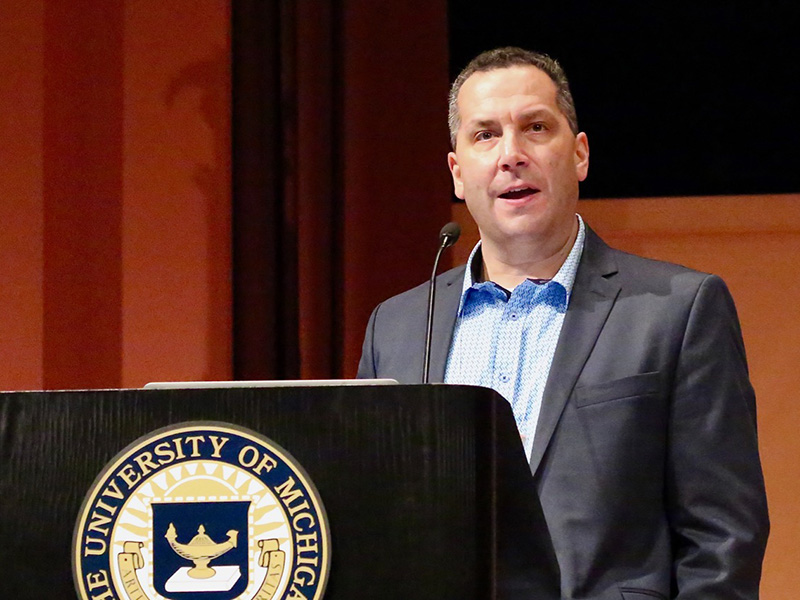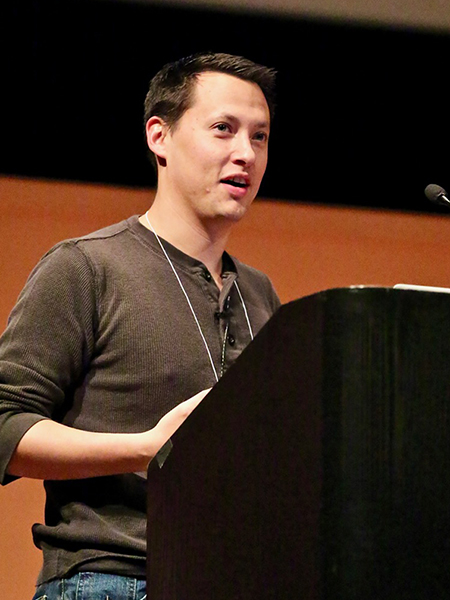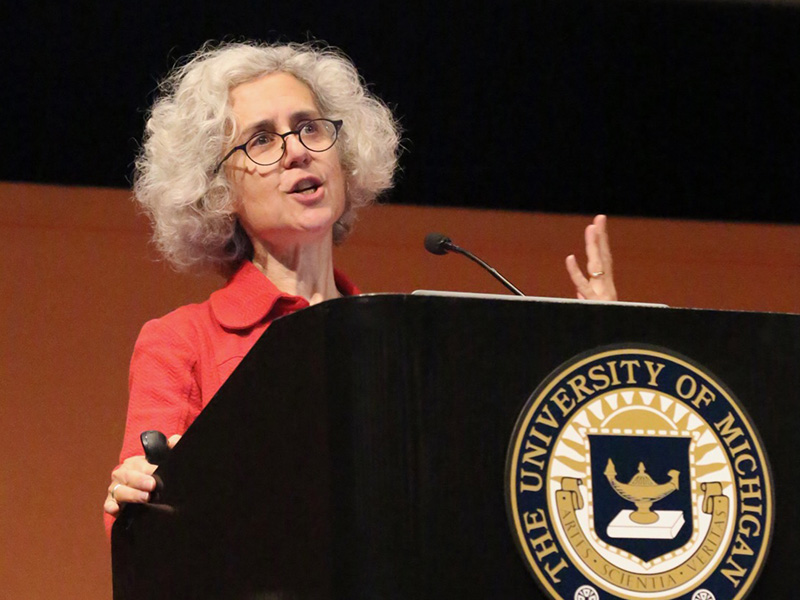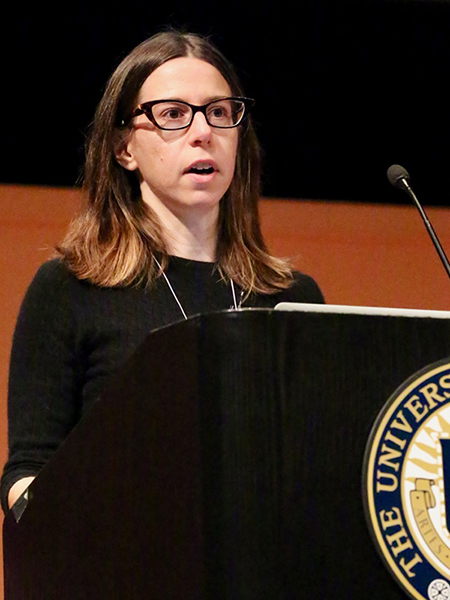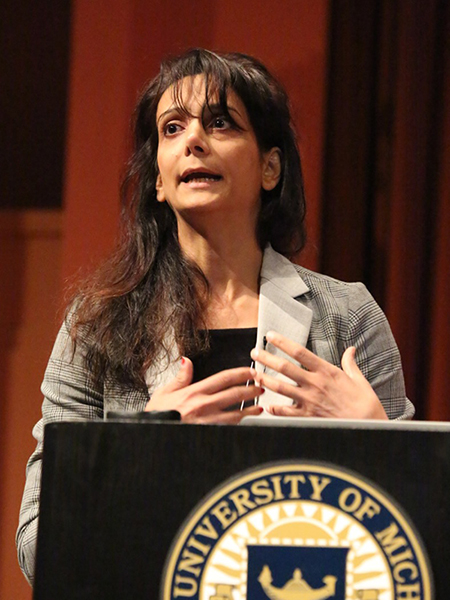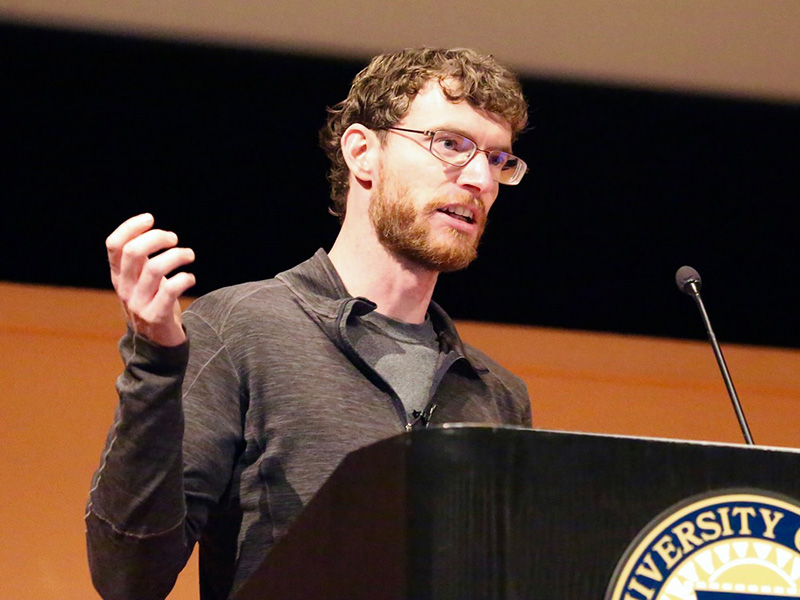The 13th annual Security at University of Michigan IT (SUMIT) was held on Thursday, October 19. More than 550 people attended SUMIT 2017 either in person at Rackham Auditorium or virtually via the live stream throughout the day. This number represents more than 170 universities, corporations, small businesses, and nonprofits from around the country.
This year, the university’s flagship event for National Cyber Security Awareness Month delved into surveillance, censorship, internet freedom, and more. Presentations included:
- Discovering and Triangulating Rogue Cell Towers, Eric Escobar, principal consultant, SecureWorks. Data thieves use rogue cell towers to steal personal information and track device location, in addition there are concerns that such devices are also used for illicit government surveillance and espionage. Eric described how to build a device to identify rogue cell towers using inexpensive hardware and explained the calculations he used with the device to locate the rogue towers.
- Developing Digital Privacy: Children’s Moral Judgments Concerning Mobile GPS Devices, Susan Gelman, Heinz Werner Distinguished University Professor of Psychology, U-M. Susan’s research focuses on how children of different ages evaluate digital tracking and whether they are sensitive to violations of privacy. She reported that very young children are not concerned about people tracking others’ possessions, while this dynamic changes as children get older. In addition, she stressed the need for privacy education for children.
- Surveillance without Borders: The “Traffic Shaping” Loophole and Why It Matters, Sharon Goldberg, associate professor, Computer Science Department, Boston University. Sharon explained that although surveillance law restricts what U.S. intelligence agencies can monitor on U.S. soil, it is far more lenient about what can be done abroad. She then described how a method for rerouting U.S. internet traffic overseas, called traffic shaping, allows agencies to evade legal restrictions on domestic surveillance.
- Censored Planet: Measuring Internet Censorship Globally and Continuously, Roya Ensafi, research assistant professor, Electrical Engineering and Computer Science, U-M. Roya’s research focuses on design of techniques and systems to protect users from hostile networks. Her presentation described a measurement system she developed for continuously monitoring global internet censorship and making it transparent to end users..
- Deploying Anticensorship in the Network, Eric Wustrow, assistant professor, Electrical, Computer, and Energy Engineering, University of Colorado Boulder. A U-M grad, Eric described work that he and a multi-institutional team have done to provide uncensored internet access to people in countries where the internet is censored. This is done through use of a proxy technique called refraction networking. Eric reviewed the engineering behind this technique, as well as other recent advances for avoiding censorship.
SUMIT is a part of U-M’s commitment to public engagement that tackles complex, often controversial topics. It makes faculty, researchers, practitioners, and recognized experts accessible to share knowledge on timely IT security and privacy issues with the university community and the southeast Michigan community at-large. Watch recordings of this year’s presentations, as well as those from previous years, on the SUMIT main web page. View a complete photo gallery from SUMIT 2017 on Flickr.

